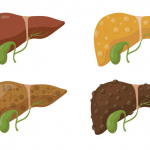Despite the medical profession’s best efforts, obesity rates are still staggeringly high around the globe. While there is some evidence to suggest that obesity rates are beginning to plateau in the US, there is no sign that obesity rates are declining, and in North America we still face a situation where the majority of adults are overweight.
As such, governments around the world are scrambling to find a way to help combat obesity. One tactic that is being discussed in many countries is whether or not to institute a tax on unhealthy foods, to encourage people to purchase healthier choices instead. A parallel is often drawn with anti-smoking campaigns, which have included increased taxation as one method to discourage people from lighting up, and have been very successful in that regard.
An interesting study from the Archives of Internal Medicine looked at the effect of changing food prices on consumption patterns and overall energy intake. Over the course of 20 years, the study found that an increase in food prices was associated with a decrease in energy intake from those foods. Thus, it seems that increasing taxes on unhealthy foods could encourage people to make healthier food choices instead. Unfortunately, this study also notes that the real price (inflated to 2006 US dollars) of soda and pizza decreased over those 20 years while the cost of milk increased – thus encouraging fast food and discouraging healthier alternatives!
If our governments are going to institute taxes on unhealthy foods, they must be careful to be placing this tax on the appropriate foods. In Denmark, for example, there is currently discussion for a tax to be placed on foods containing saturated fat. This would include foods such as dark chocolate, but some types of potato chips would not be caught under this umbrella because they are low in saturated fat. Dark chocolate has some known health benefits when consumed in moderation (eg, its antioxidant properties), and it would be inappropriate to promote potato chips as a healthier alternative.
Given the staggering rates of obesity that we face, it is high time that our governments get more involved to institute policies that promote a healthier society. A comprehensive approach which includes promotion of healthier eating and an active life style are long overdue, and a plan that rewards us financially for making healthy food choices is a good idea. Ideally, this reward would come in the form of tax breaks on healthy food, but in reality, higher price tags on unhealthy food may be the more likely plan of action.
Dr. Sue © 2010 www.drsue.ca drsuetalks@gmail.com












